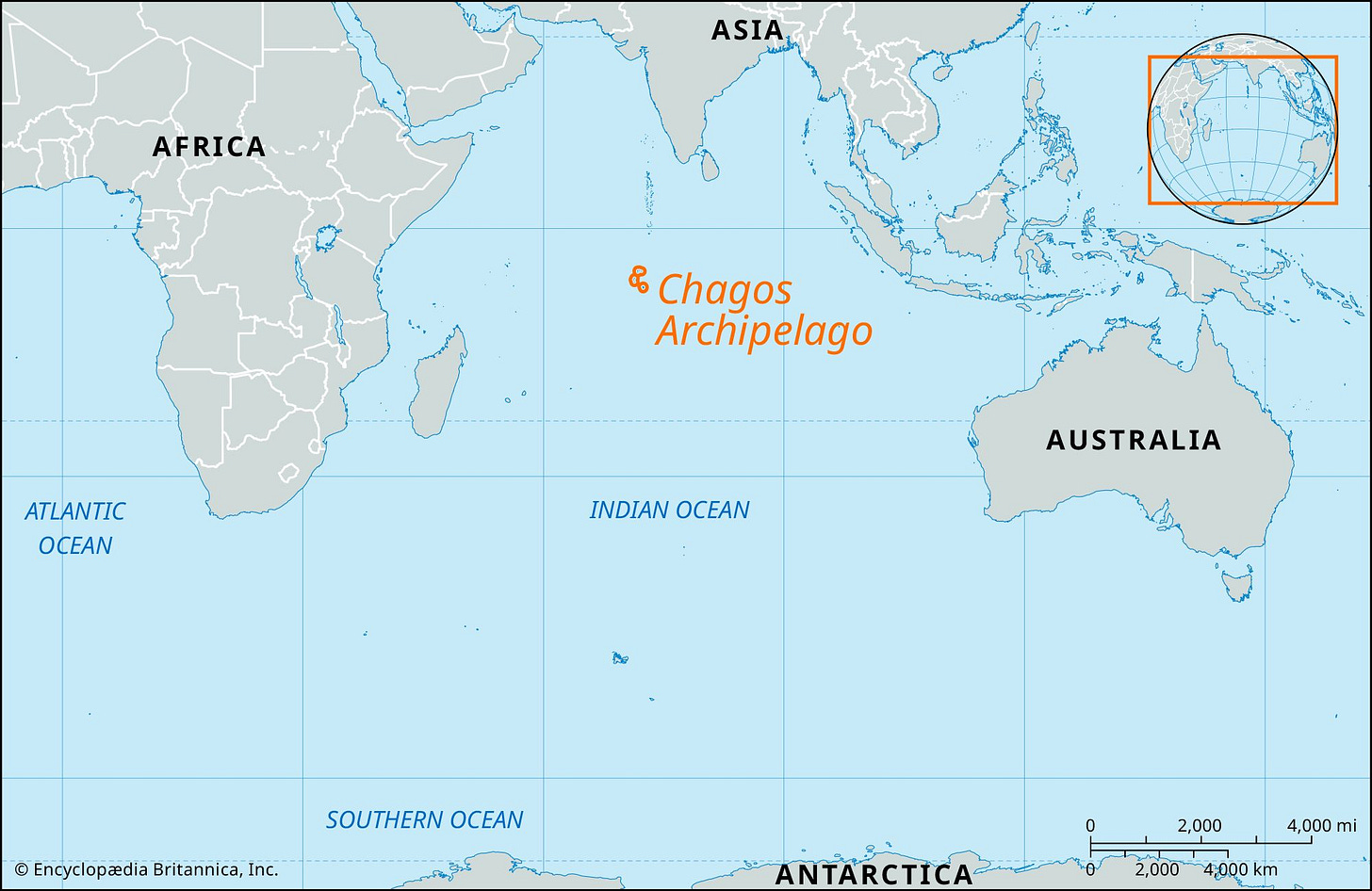Contents
Introduction
The History
UK-Mauritius Deal
China’s String of Pearls Hypothesis
Looking Forward
Concluding Remarks
Bitesize Edition
The British spent most of the 20th century unwinding the period of colonialism that unfolded during the height of the British Empire. Some footholds remain today, however. One such foothold was the Chagos Islands.
In a move that has been discussed for many years, the Chagos Islands have now been given to the sovereignty of Mauritius. Does this contribute to declining British hard power on a global scale? Why has this occurred now, and who stands to potentially benefit from this agreement? Find out more below.
Introduction
This move by the UK has been hotly debated. Strategically, it’s been seen as a geopolitical loss of influence by some, although military base access has been secured for the next 99 years. The British and Americans maintain a foothold in the Indian Ocean, but will other countries seek to gain influence with the islands under new sovereignty?
Morally, if this issue leads to the return of the Chaggosians, then it should be pursued with enthusiasm. It would be seen as a win for a community who have been voiceless for decades.
This event has both geopolitical and moral implications. Today I’ll explore recent events through both scopes.
The History
The Chagos Archipelago is a group of 60 islands in the Indian Ocean, which was referred to as a British Indian Ocean Territory.
The ethnic Chaggosians lived there from the 1700s. They were brought by the French from India and Africa as slaves. The slaves originated from modern-day Mozambique and Madagascar via Mauritius, hence where Mauritius becomes involved in this story.
The 1814 Treaty of Paris saw the UK take control of the Islands after the Napoleonic Wars. The UK used the atoll of Diego Garcia as a slave trading island between Indonesia, the Seychelles and Reunion. At this time, a Malaysian population was also incorporated into the Chagos Islands. By 1839, slavery had been abolished and a 5-year transition period unfolded. The island then became home to a group of plantations on which the Chaggosians worked.
During World War Two, British and Indian troops were stationed on the islands as a point of influence in the Indian Ocean. It was over two decades later when the military use of Diego Garcia rose to the forefront.
A 50-year US-UK agreement was signed with Mauritius in 1966 to use the Chagos Islands for military use, and that the islands wouldn’t have any resident population. This deal included a £3M payment from the UK to Mauritius. After this proposal for the islands to have no civilian population, in 1968, the United Kingdom on behalf of the United States, forced the removal of the Chaggosians with forced deportations. This came in the same year as the independence of Mauritius, but the UK retained control of the Chagos Islands.
The United States had no “possessions” in the area. In collaboration with the British, the plan was to find an unpopulated territory to avoid sovereignty and colonisation issues. These issues were not avoided. This move led to uproar and calls for compensation and the right of return for the Chaggosians, many of whom settled in Crawley and Manchester in the UK. By 1973, the entire population had been removed, with the £3M payment looming over this exploitation deemed as woefully inadequate.

Any support for the Chaggosians over the decades since has been very limited, with both the UK and US undermining any potential return process for the Chaggosians. Protests, petitions, and diplomatic leaks have occurred since the year 2000. As recently as 2004, the British Government stated those originally from the island will be banned from returning “forever”. A 2016 ruling supported this also. This changed in 2017 when a UN General Assembly meeting voted in favour of the International Court of Justice referring to the territorial dispute between the United Kingdom and Mauritius.
In 2019, the International Court of Justice ruled that the UK didn’t have sovereignty over the Islands, and they should be handed over to Mauritius. The UN General Assembly gave the UK a 6-month period to commence the process. In January 2020, the UK still refused to follow the advice of the ICJ and many other nations around the world. It should be noted this wasn’t legally binding, but was advised and did pressure the UK.
This initial ignorance by the UK makes the latest development all the more unexpected, even though progress had started to be made under the previous Conservative government.
UK-Mauritius Deal
Keep reading with a 7-day free trial
Subscribe to Geopolitics Explained to keep reading this post and get 7 days of free access to the full post archives.



